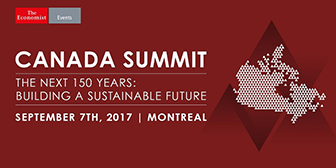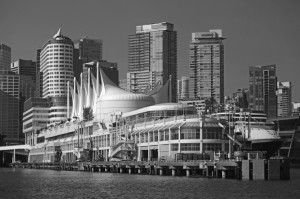
Past Events
 IPSOS CanadaNext
IPSOS CanadaNext
in partnership with IPSOS/IBM/Munk School
September 18, 2017
Ramsay Talks
October 2016
CANADA TOWARDS 2030 – June 2013
 CANADA SUMMIT – The Economist
CANADA SUMMIT – The Economist
September 2017
Theme: demographics
https://events.economist.com/events-conferences/americas/canada-2017

 IFEBP
IFEBP
August 2017
50th Annual Canada Conference
Theme: long-term trends, thinking and investing for pension funds and employee benefits plans
https://www.ifebp.org/education/canadianannual/Pages/annual-canadian-employee-benefits-conference-1725.aspx
 C2
C2
May 2017
Theme: Towards 2030 Workshop
https://www.c2montreal.com/
Trilateral Commission (Canada/USA/Mexico)
November 2014
Theme: demographics in the Americas
http://trilateral.org/
CANADA TOWARDS 2030 – September 2013
QG100
October 2014
Theme: Long-term trends: technologies
CANADA TOWARDS 2030 – September 2014
Banff Forum 2014
Theme: Future competitiveness and prosperity
http://www.banffforum.ca/news/banffforumxiii
EY Canadian Leaders’ Summit
September 2015
Theme: Towards 2030
APEX – Association of Professional Executives of the Public Service of Canada
May 2015
ASDEQ Association des économistes du Québec – Congrès annuel
May 2014
 September 24, 2015 – 17h00
September 24, 2015 – 17h00
Saint Mary’s University
Event Summary
This event, hosted at Saint Mary’s University on September 24, 2015, was organized by the Atlantic Provinces Economic Council (APEC), with special sponsoring by Bank of Montreal and EDC. A concept of “next big ideas” was developed by APEC along with participants from the four Maritime Provinces whom made suggestions prior and during the meeting (for details, please see https://www.apec-econ.ca/events/view/?event.id=98&site.page.id=60000).
After a few introductory remarks by APEC’s Chairman, Mr. Karl Smith, CFO, Fortis, Eric Noël was introduced by Dr. Finn Poshmann, the new CEO of APEC. Eric’s 2030 presentation was adapted to the long term particularities of Atlantic Canada, notably its demographics (“while Canada’s population grows by 5 million in the coming 15 years, the Maritimes may only have 32,000 more citizens, and Newfoundland’s population will be smaller than today.”). He alluded to the future political irrelevance of the region in terms of federal politics (fewer MPs as a percentage of the House) and the need to form a common Atlantic front in Ottawa; and the necessity to eventually merge provincial public service capacities and expertise, perhaps in a Atlantic Provinces Shared Services Agency. Eric Noël also noted the attraction potential of the Atlantic provinces “which offer more affordable housing and labor than other provinces, and a great quality of living, at a time when globalization and technology can facilitate the localization of new industries right here. For example, the future of the car industry won’t necessarily be Detroit or Oshawa-centric. Leaders in sensors for the self-driving cars or trucks, telematics or battery management software can emerge anywhere in Canada, including Halifax.”
After the presentation, participants were invited to brainstorm and suggest more “next big ideas”. Participants showed particular interest in the following topics:
- Efforts to mitigate the cost of ageing, notably the upcoming surge in the inactive population (“aging without disengaging”);
- Ways to attract more immigrant entrepreneurs; and
- To bring and keep more Canadian and foreign graduate students in the region;
- Teaching basic business and personal finance principles in high school in order to better prepare young people for their working life (or entrepreneurial one);
- Positioning “science/digital economy” high growth industries while re-energizing the agri-business sector (doubling farms and fisheries output) with more value-added, and high tech products;
- Getting ready for extreme weather events and sharing best practices in preventing/resuming operations affected by storms;
- Climate change, warmer waters and sea-level rise and their meaning for fisheries, tourism, infrastructure protection, and business and public services;
- The opening of the Arctic trade route and its benefits for the naval industry in Newfoundland, New Brunswick and Nova Scotia (manufacturing, maintenance and servicing, ports and logistics);
- More research and conversations needed on behavioral economics (“nudging”) and the selection of the right mix of long term incentives and policies.
Thank you to APEC for their invitation and to our APEC participants for their consideration, “big idea” thinking, and determination to address the future challenges and opportunities of Atlantic Canada.
 September 10, 2014 – 17h00
September 10, 2014 – 17h00
Auberge St-Antoine
Event Summary
More than seventy participants took part in this event, which concluded with an engaging Q&A session.
To kick things off, local businessman Mr. Evan Price extended greetings on behalf of the Auberge Saint-Antoine, after which Mr. Eric Noël was introduced by Ms Diane Belliveau, Quebec City’s regional director for Export Development Canada.
After Mr. Noël’s presentation on the megatrends, the mirages and the ages that are expected to affect Canada and the region of Quebec City, Mr. Claude Bernatchez, a broadcaster at Première Chaine Radio-Canada, interviewed him. The Q&A session on 2030-related themes was captivating and focused on the following themes:
- The aging of Canada’s and Quebec’s populations and its associated economic impact (GDP potential and public costs), financial impact (decumulation, real estate and municipal taxation) and consequences for labour.
- How many of the 205,000 Quebecers aged 65+ will head south for the winter, and how many will emigrate from the east of Quebec to the vicinity of Quebec City.
- The rise of Asian immigration to Canada between now and 2030 could force Ottawa to wade into several controversial subjects in Asia if there happened to be geopolitical instability in that region, and perhaps even to get militarily involved.
- Will the low number of immigrants present in Quebec City at the present time give it a “monocultural” allure when compared with the rest of Canada in 2030?
- There will be a different global geopolitical situation in the future, which will include unexpected events known as “black swans”, an increase in the number of the world’s religious adherents (“religionalism”) abroad and an alteration in the capacity of governments and businesses to anticipate change coming from abroad.
- Scientific and technological advances could help us tackle our demographics-related challenges, but could also revolutionize the service sector, presenting both a risk (a loss of employment) and an opportunity (aiding Quebec’s computer and robotics industries, helping the elderly and reducing the impact of anticipated labour scarcity).
- The Keystone XL pipeline — which still awaits President Obama’s approval — and the future of infrastructure and logistics support to the natural resource industry’s boom (including agriculture) and the near uselessness of past debates (in hindsight, the Rabaska project, for instance).
- How to adapt government regulation to emerging technologies? Regulations often take time to change. Moreover, when it comes to tech validation, governments often have a limited testing and approval capacity.
- The future of economic information and of journalistic inquiry into related issues, and the need to bring economics classes back into our secondary schools (including personal finance education).
- How do we keep our seniors engaged in daily life activities (particularly those aged 80+)? Should we encourage younger and older individuals to cohabitate in downtown cores?
- How do we avoid a political, economic and geographic conflict between our youth and our seniors?
- The future of sports (professional, amateur, or virtual gaming).
- New digital business models and the “all-connected”/big data innovation, their effect on so-called protected markets (e.g., Airbnb, Uber), and our desire either to re-regulate or deregulate in this context.
- Quebec City, simultaneously a city of the future (due to technological advances) and a historic city (for the purposes of tourism), a city of the Third Age and of the New Age. Is this a parallel and prosperous duality for the city?
Thank you to our host, Québec International, to our sponsors and to our participants in Quebec City for this stimulating event!
 Thursday, October 24, 2013
Thursday, October 24, 2013
School of Public Policy (17h00)
Event Summary
The 4th “CANADA TOWARDS 2030: four macro-changes, four mirages and four ages” presentation was hosted by the University of Calgary’s School of Public Policy. After his lecture, Eric Noël answered questions from Director and Professor Jack Mintz and from the floor. Participants showed particular interest for the following themes:
- Three core concerns: ageing, deleveraging and climate change;
- Heavy competition to satisfy energy demand in emerging markets and the multiplicity of long term supply options;
- New economic models that could alter capitalism as we know it today;
- Extreme weather events and physical and social preparedness;
- Cuts in space programs and potential effects on the future of science and technology and new commercial applications;
- Energy, water and agriculture clean tech in Western Canada;
- The future of social media and cyber risks – more disinformation and less social cohesion?;
- Tomorrow’s municipal infrastructure financing (and maintenance);
- Doing more to teach “critical thinking” in school.
Thank you to our Calgary Participants for their attention and contribution, and to the School of Public Policy for the great organization and warm welcome!
 Monday, September 16, 2013
Monday, September 16, 2013
Omni Mont-Royal Hotel (12h00)
Event Summary
65 participants attended the Canada Towards 2030 lunch presentation in Montreal. A diversified audience representing several industries, government agencies, academic and social institutions as well. The feedback from this event has been the most positive to date, with the most people praising their thinking experience, some suggesting that we organize a “Montreal 2030” research group. The lunch was opened by Mrs. Julie Pottier, VP Quebec Region for EDC. Eric Noël was then introduced by former Quebec Premier Mr. Pierre-Marc Johnson and thanked by CIBC’s Chairman, Mr. Charles Sirois. Due to the lunch format, Q&A time was limited, but points raised were on:
- Organizations’ weaknesses in planning for the long term and sticking with their visions despite tough times, leadership change or changing customer or electorate demand;
- The business-friendly and very competitive policies in emerging markets vs. our own regulatory and governance complexities;
- The future of agriculture in Quebec due to global warming and longer or multiple crop seasons;
- The many difficulties coming from ageing, low immigration and productivity in Quebec and in communicating the necessity to plan and act;
- Industrial positioning in shorter supply chains, notably when US activity is influenced by cheaper energy input (Shale gas);
- The resilience of the United States and the ability of its people to face economic and political headwinds.
- The end of the “All-about-BRIC mirage”, a possible slowdown in China, and under-estimated political risks in Russia, India, Brazil and other emerging markets; and their impacts on globalisation.
“Merci” to our Montreal Participants for their time, attention and encouraging feedback !
 Monday, September 9, 2013
Monday, September 9, 2013
Co-hosts: Asia Pacific Foundation and Business Council of British Columbia.
Event Summary
Some 40 participants attended this presentation which was very well received. Eric Noël was introduced by Mr. Yuen Pau Woo of the Asia Pacific Foundation and thanked by Mr. Doug Horswill of Teck (the company also kindly provided us with a very modern conference room). Points raised during Q&A, dinner and in following exchanges touched on:
- With so many changes on the 2030 horizon, there is a need to prioritize the emerging risks and opportunities and our actions. A hierarchy of things to address, without neglecting what seems less important today;
- The long term implications of wealthy Chinese and Asian immigration into Vancouver;
- Considerations for the First Nations’ vision of Canada in 2030;
- The future of agriculture and of global food demand, and the opportunities for BC’s rural areas;
- The risk of slower GDP growth (maybe from a smaller GDP potential), and smaller government revenues;
- Income inequality in the developing world and effects on Canada’s immigration and overseas business conditions;
- The serious waste/pollution impacts on well-being coming from the rise of 800M or more new middle class consumers in the “emerged” markets;
- Hopeful note that China’s air pollution is addressable and reversible: Taipei resolved its own severe smog issues of the ‘80s;
- Innovation and tech trends in China and a new “Silicon Valley” way before 2030.
Thank you to our Vancouver Hosts and Participants for their help, contribution and interest!
 Monday, June 24, 2013
Monday, June 24, 2013
Soho Metropolitan Hotel
Event Summary
After an entertaining 80-minute presentation entitled « CANADA TOWARDS 2030: four macro-changes, four mirages and four ages », Eric Noël answered questions from Business News Network BNN’s anchor and author Howard Green and from the floor. The very attentive and involved participants showed mostly optimism, but also some concerns regarding the challenges ahead and the ability of our society to respond. Questions and exchanges (including during reception) were centered on:
- Black swans, and how to deal with them;
- The end of the commodities bonanza and the side effects of lower energy and metals prices.
- Geopolitics in 2030;
- China;
- World economy and Canadian Champions
- Governments’ role and ability to manage/answer long term trends;
- Strategies to anticipate and respond to the future;
- The necessity to act locally, nationally and internationally now in order to influence positively long term problems (slow but critical ones, thus often neglected).
Thank you to our Toronto Participants for their contribution and interest!
 English
English